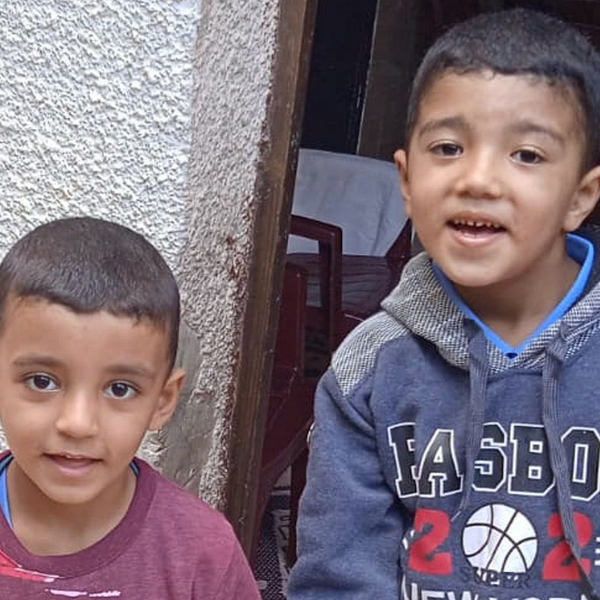Israel Admits Harvesting Palestinian Organs
Israel has admitted that pathologists harvested organs from dead Palestinians, and others without the consent of their families - a practice that it said ended in the 1990s, it emerged at the weekend.
The admission, by the former head of the country's forensic institute, followed a furious row prompted by a Swedish newspaper reporting that Israel was killing Palestinians in order to use their organs - a charge that Israel denied and called "antisemitic".
The revelation, in a television documentary, is likely to generate anger in the Arab and Muslim world and reinforce sinister stereotypes of Israel and its attitude to Palestinians. Iran's state-run Press TV tonight reported the story, illustrated with photographs of dead or badly injured Palestinians.
Ahmed Tibi, an Israeli Arab MP, said the report incriminated the Israeli army.
The story emerged in an interview with Dr Yehuda Hiss, former head of the Abu Kabir forensic institute near Tel Aviv. The interview was conducted in 2000 by an American academic who released it because of the row between Israel and Sweden over a report in the Stockholm newspaper Aftonbladet.
Channel 2 TV reported that in the 1990s, specialists at Abu Kabir harvested skin, corneas, heart valves and bones from the bodies of Israeli soldiers, Israeli citizens, Palestinians and foreign workers, often without permission from relatives.
The Israeli military confirmed to the programme that the practice took place, but added: "This activity ended a decade ago and does not happen any longer."
Hiss said: "We started to harvest corneas ... whatever was done was highly informal. No permission was asked from the family."
However, there was no evidence that Israel had killed Palestinians to take their organs, as the Swedish paper reported. Aftonbladet quoted Palestinians as saying young men from the West Bank and Gaza Strip had been seized by the Israeli forces and their bodies returned to their families with missing organs. The interview with Hiss was released by Nancy Scheper-Hughes, professor of anthropology at the University of California-Berkeley who had conducted a study of Abu Kabir.
She was quoted by the Associated Press as saying that while Palestinians were "by a long shot" not the only ones affected, she felt the interview must be made public, because "the symbolism, you know, of taking skin of the population considered to be the enemy, [is] something, just in terms of its symbolic weight, that has to be reconsidered."
Israel demanded that Sweden condemn the Aftonbladet article, calling it an antisemitic "blood libel". Stockholm refused, saying that to so would violate freedom of speech in the country. The foreign minister then cancelled a visit to Israel, just as Sweden was taking over the EU's rotating presidency.
Hiss was removed from his post in 2004, when some details about organ harvesting were first reported, but he still works at the forensic institute.
Israel's health ministry said all harvesting was now done with permission. "The guidelines at that time were not clear," it said in a statement to Channel 2. "For the last 10 years, Abu Kabir has been working according to ethics and Jewish law."
* This article was amended on 21 December 2009. The original misspelled a name as Nancy Sheppard-Hughes. This has been corrected.
An Urgent Message From Our Co-Founder
Dear Common Dreams reader, The U.S. is on a fast track to authoritarianism like nothing I've ever seen. Meanwhile, corporate news outlets are utterly capitulating to Trump, twisting their coverage to avoid drawing his ire while lining up to stuff cash in his pockets. That's why I believe that Common Dreams is doing the best and most consequential reporting that we've ever done. Our small but mighty team is a progressive reporting powerhouse, covering the news every day that the corporate media never will. Our mission has always been simple: To inform. To inspire. And to ignite change for the common good. Now here's the key piece that I want all our readers to understand: None of this would be possible without your financial support. That's not just some fundraising cliche. It's the absolute and literal truth. We don't accept corporate advertising and never will. We don't have a paywall because we don't think people should be blocked from critical news based on their ability to pay. Everything we do is funded by the donations of readers like you. Will you donate now to help power the nonprofit, independent reporting of Common Dreams? Thank you for being a vital member of our community. Together, we can keep independent journalism alive when it’s needed most. - Craig Brown, Co-founder |
Israel has admitted that pathologists harvested organs from dead Palestinians, and others without the consent of their families - a practice that it said ended in the 1990s, it emerged at the weekend.
The admission, by the former head of the country's forensic institute, followed a furious row prompted by a Swedish newspaper reporting that Israel was killing Palestinians in order to use their organs - a charge that Israel denied and called "antisemitic".
The revelation, in a television documentary, is likely to generate anger in the Arab and Muslim world and reinforce sinister stereotypes of Israel and its attitude to Palestinians. Iran's state-run Press TV tonight reported the story, illustrated with photographs of dead or badly injured Palestinians.
Ahmed Tibi, an Israeli Arab MP, said the report incriminated the Israeli army.
The story emerged in an interview with Dr Yehuda Hiss, former head of the Abu Kabir forensic institute near Tel Aviv. The interview was conducted in 2000 by an American academic who released it because of the row between Israel and Sweden over a report in the Stockholm newspaper Aftonbladet.
Channel 2 TV reported that in the 1990s, specialists at Abu Kabir harvested skin, corneas, heart valves and bones from the bodies of Israeli soldiers, Israeli citizens, Palestinians and foreign workers, often without permission from relatives.
The Israeli military confirmed to the programme that the practice took place, but added: "This activity ended a decade ago and does not happen any longer."
Hiss said: "We started to harvest corneas ... whatever was done was highly informal. No permission was asked from the family."
However, there was no evidence that Israel had killed Palestinians to take their organs, as the Swedish paper reported. Aftonbladet quoted Palestinians as saying young men from the West Bank and Gaza Strip had been seized by the Israeli forces and their bodies returned to their families with missing organs. The interview with Hiss was released by Nancy Scheper-Hughes, professor of anthropology at the University of California-Berkeley who had conducted a study of Abu Kabir.
She was quoted by the Associated Press as saying that while Palestinians were "by a long shot" not the only ones affected, she felt the interview must be made public, because "the symbolism, you know, of taking skin of the population considered to be the enemy, [is] something, just in terms of its symbolic weight, that has to be reconsidered."
Israel demanded that Sweden condemn the Aftonbladet article, calling it an antisemitic "blood libel". Stockholm refused, saying that to so would violate freedom of speech in the country. The foreign minister then cancelled a visit to Israel, just as Sweden was taking over the EU's rotating presidency.
Hiss was removed from his post in 2004, when some details about organ harvesting were first reported, but he still works at the forensic institute.
Israel's health ministry said all harvesting was now done with permission. "The guidelines at that time were not clear," it said in a statement to Channel 2. "For the last 10 years, Abu Kabir has been working according to ethics and Jewish law."
* This article was amended on 21 December 2009. The original misspelled a name as Nancy Sheppard-Hughes. This has been corrected.
Israel has admitted that pathologists harvested organs from dead Palestinians, and others without the consent of their families - a practice that it said ended in the 1990s, it emerged at the weekend.
The admission, by the former head of the country's forensic institute, followed a furious row prompted by a Swedish newspaper reporting that Israel was killing Palestinians in order to use their organs - a charge that Israel denied and called "antisemitic".
The revelation, in a television documentary, is likely to generate anger in the Arab and Muslim world and reinforce sinister stereotypes of Israel and its attitude to Palestinians. Iran's state-run Press TV tonight reported the story, illustrated with photographs of dead or badly injured Palestinians.
Ahmed Tibi, an Israeli Arab MP, said the report incriminated the Israeli army.
The story emerged in an interview with Dr Yehuda Hiss, former head of the Abu Kabir forensic institute near Tel Aviv. The interview was conducted in 2000 by an American academic who released it because of the row between Israel and Sweden over a report in the Stockholm newspaper Aftonbladet.
Channel 2 TV reported that in the 1990s, specialists at Abu Kabir harvested skin, corneas, heart valves and bones from the bodies of Israeli soldiers, Israeli citizens, Palestinians and foreign workers, often without permission from relatives.
The Israeli military confirmed to the programme that the practice took place, but added: "This activity ended a decade ago and does not happen any longer."
Hiss said: "We started to harvest corneas ... whatever was done was highly informal. No permission was asked from the family."
However, there was no evidence that Israel had killed Palestinians to take their organs, as the Swedish paper reported. Aftonbladet quoted Palestinians as saying young men from the West Bank and Gaza Strip had been seized by the Israeli forces and their bodies returned to their families with missing organs. The interview with Hiss was released by Nancy Scheper-Hughes, professor of anthropology at the University of California-Berkeley who had conducted a study of Abu Kabir.
She was quoted by the Associated Press as saying that while Palestinians were "by a long shot" not the only ones affected, she felt the interview must be made public, because "the symbolism, you know, of taking skin of the population considered to be the enemy, [is] something, just in terms of its symbolic weight, that has to be reconsidered."
Israel demanded that Sweden condemn the Aftonbladet article, calling it an antisemitic "blood libel". Stockholm refused, saying that to so would violate freedom of speech in the country. The foreign minister then cancelled a visit to Israel, just as Sweden was taking over the EU's rotating presidency.
Hiss was removed from his post in 2004, when some details about organ harvesting were first reported, but he still works at the forensic institute.
Israel's health ministry said all harvesting was now done with permission. "The guidelines at that time were not clear," it said in a statement to Channel 2. "For the last 10 years, Abu Kabir has been working according to ethics and Jewish law."
* This article was amended on 21 December 2009. The original misspelled a name as Nancy Sheppard-Hughes. This has been corrected.

